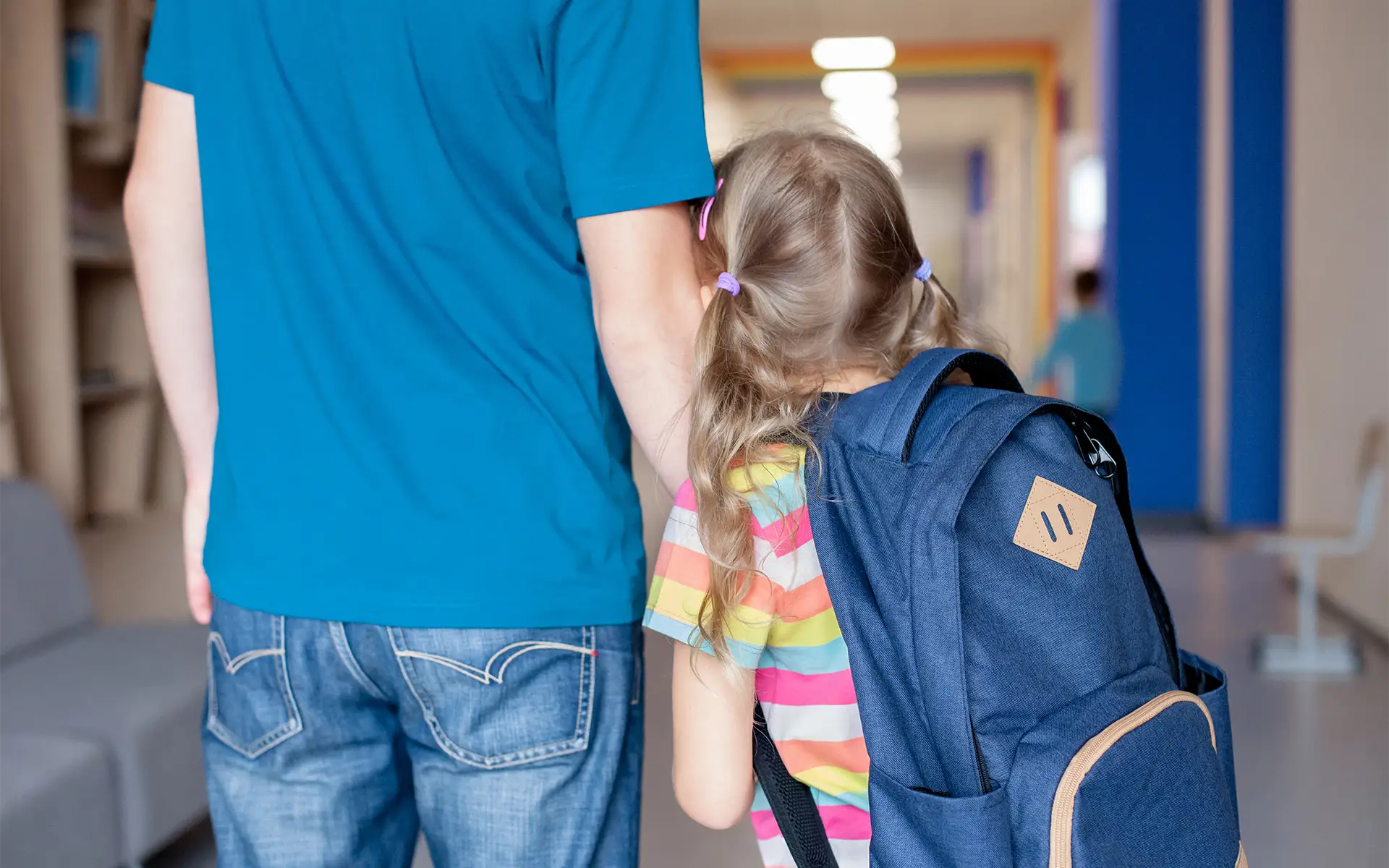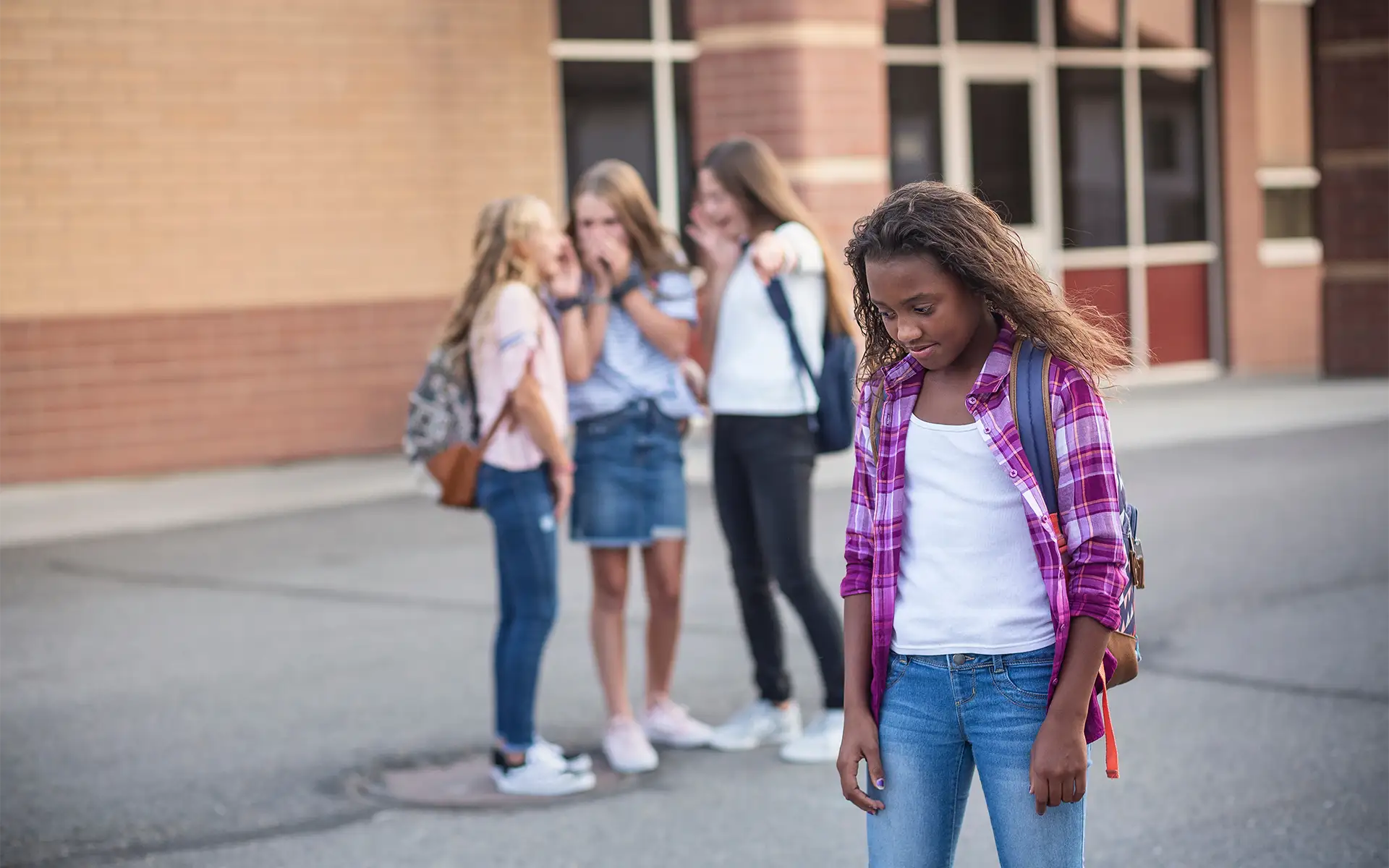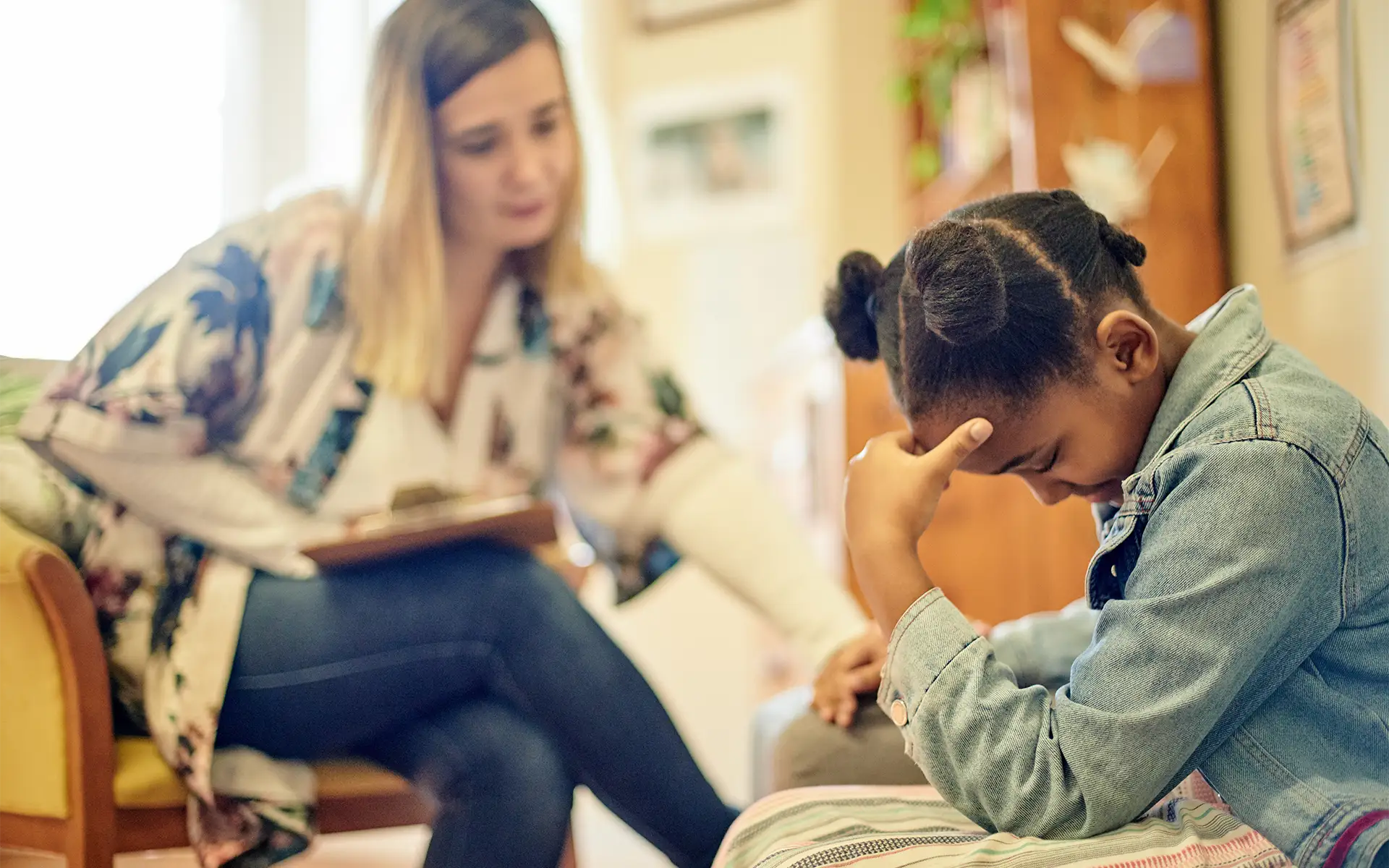
It’s normal for kids to feel anxious about school, whether it’s back to school anxiety or nerves about a test or presentation. Most parents have dealt with pushback on school mornings, and those moments can be stressful for all involved.
However, this anxiety can sometimes be more than just nerves about a specific event. When a child feels very nervous, worried, or even fearful about going to school on a regular basis, something more serious may be at play. Unlike simply disliking a subject or avoiding homework, school anxiety can show up as real physical symptoms, such as stomachaches, headaches, or trouble sleeping, and emotional distress, including crying, panic, or irritability.
In this blog, we are examining school anxiety, signs and symptoms, common causes, how to help, and when to seek professional support.
What Is School Anxiety?
Back to school anxiety is common for children and teens. However, prolonged school avoidance anxiety is more than just first day jitters. It occurs when the thought of going to school causes a child to feel so worried or fearful that it affects their body, emotions, and ability to attend or focus in class. It happens because the brain reacts to school as if it’s a threat, even though it isn’t. The worry can manifest from different triggers, such as fear of being away from parents, pressure to perform well, bullying, and more. School anxiety is not uncommon, and it’s important to recognize the signs.
Signs and Symptoms of School Anxiety
School anxiety can affect kids of all ages, often impacting parents and teachers as well. The signs and symptoms may show up differently depending on a child’s age and personality. However, recognizing the red flags is the first step to gaining clarity and seeking the support they need. Although signs of school anxiety may seem like “normal” emotions or symptoms, when they are ongoing, they can point to something deeper than ordinary nerves.
Emotional Symptoms
Symptoms of school anxiety are often emotional, such as heightened worry, fear, or panic about school-related situations. For example, some children may become unusually irritable, withdrawn, or tearful. Teens, in particular, may express their anxiety as frustration, mood swings, or even hopelessness.
Physical Symptoms
Profound anxiety can cause physical reactions, and common symptoms can include stomachaches, headaches, nausea, or extreme fatigue. It’s a good indicator that school anxiety is responsible when these symptoms most often appear on school days or in the mornings before class, especially when symptoms disappear over weekends or during school breaks.
Behavioral Signs
Repetitive disruptive behaviors that interfere with school attendance or performance can be indicators of school anxiety. For example, children might refuse to attend school, frequently ask to stay home, or create reasons to avoid class. Other examples include crying before school, clinging to parents at drop-off, or having angry outbursts. For teenagers, anxiety in school can lead to avoiding classes, declining social activities, or a sudden drop in grades.
Common Causes of School Anxiety

School avoidance anxiety is not a Diagnostic and Statistical Manual of Mental Disorders (DSM–5) diagnosis. Instead, it is often a symptom of an underlying issue that triggers behaviors or emotions, making the school environment feel overwhelming. Although each child’s situation is unique, some of the most common contributors include:
Separation Anxiety
Separation anxiety at school is when a child becomes overly worried about being separated from parents or caregivers. It can present difficulties with school drop-off or throughout the day, such as habitual crying or tantrums.
Academic Pressure and Test Anxiety
Fear of failing, perfectionism, or struggling to keep up with assignments and tests can cause overwhelming worry, even for younger children. When persistent or unresolved, this stress may turn into school avoidance anxiety.
Social Anxiety and Bullying
Social anxiety and bullying can cause children to feel distinctly uncomfortable or unsafe at school. Bullying can be particularly damaging to a child’s self-esteem and mental health, requiring intervention from parents or school staff. Unfortunately, many children can be reluctant to talk about it for fear of retaliation or embarrassment.
Back-to-School Transitions
It’s normal to feel anxious about starting a new school year, moving to a different school, or transitioning from elementary to middle or high school. Even positive changes like joining a new team can trigger stress and anxiety. Typically, these feelings subside when routines settle. However, if the unease and anxiety persist, it may signal a deeper issue that needs attention.
How to Help a Child with School Anxiety
The first step to supporting children with school anxiety is to listen. Typically, children who feel heard and understood have an easier time sharing what’s really bothering them. Parents, caregivers, and school staff can then work together to find solutions that reduce stress and build confidence.
Strategies for Parents
It’s important for parents and caregivers to listen to and validate their child’s feelings without being dismissive, which can help children feel less isolated and alone. Creating predictable routines, such as a consistent bedtime, morning schedule, and after-school routine, can also help children feel more secure when other parts of their day feel uncertain. Parents can also ease the transition from home to school by creating special rituals, like a special goodbye handshake or positive affirmations.
Professional Support
There are times when routine changes and affirmations at home don’t resolve school anxiety, and that’s ok. At times, parents and caregivers may also need help from the school and medical providers. For example, a visit with a pediatrician can eliminate any medical causes of physical symptoms. If mental health support is recommended, then pediatric therapists or psychologists can teach coping strategies, address underlying issues, and build long-term skills to manage anxiety. At school, counselors can provide in-school support or accommodations for anxiety in school that make attending feel less overwhelming.
First Day of School Anxiety
Managing expectations around school can help children transition into new situations with confidence. Before the first day, parents can take their children to their school and classroom to meet the teachers and familiarize themselves with the environment to reduce uncertainty. Also, pairing anxious children with a classmate, sibling, or older student can help them feel less alone, building confidence through connection.
Dealing with Social Anxiety at School
Parents can help ease social anxiety at school by encouraging their child to make friends or join clubs and activities that align with their interests. Parents can help ease anxiety about speaking in group situations by role-playing at home. Talk to your children about their day and celebrate small wins, such as answering a question in class or making a new friend, to help build their confidence and reduce anxiety.
Relaxation and Coping Tools
Teaching children relaxation and coping skills can equip them with tools for managing stress and anxiety, such as breathing exercises and age-appropriate meditation apps. Also, journaling provides an excellent outlet for processing emotions, whether it’s writing or drawing about feelings.
When to Seek Professional Help

When school avoidance anxiety continues even after helpful interventions, it may be symptomatic of other diagnoses1, such as social anxiety disorder, generalized anxiety disorder, specific phobia, major depression, post-traumatic stress disorder, and adjustment disorder, among others. Professional help is especially important if anxiety is causing persistent attendance disruption, frequent tantrums or panic attacks, or a severe decline in academics.
In these cases, reaching out to your child’s primary healthcare provider is a valuable first step. They can recommend assessments or referrals to uncover the underlying issues and connect parents with appropriate support. For younger children, developmental assessments may provide important insights and open doors to therapy services that ease anxiety and strengthen coping skills.
At KidsCare Home Health, our compassionate therapists provide in-home therapy in a setting where children feel most comfortable. Our professionals understand childhood anxiety and strive to build confidence, not just skills. No matter what challenges children face developmentally, connecting with professionals early can lead to meaningful improvements in mood, attendance, and overall well-being.















